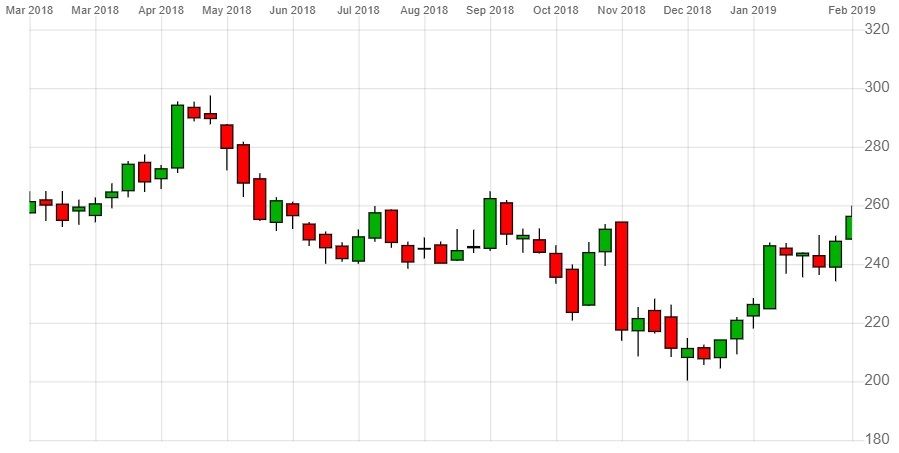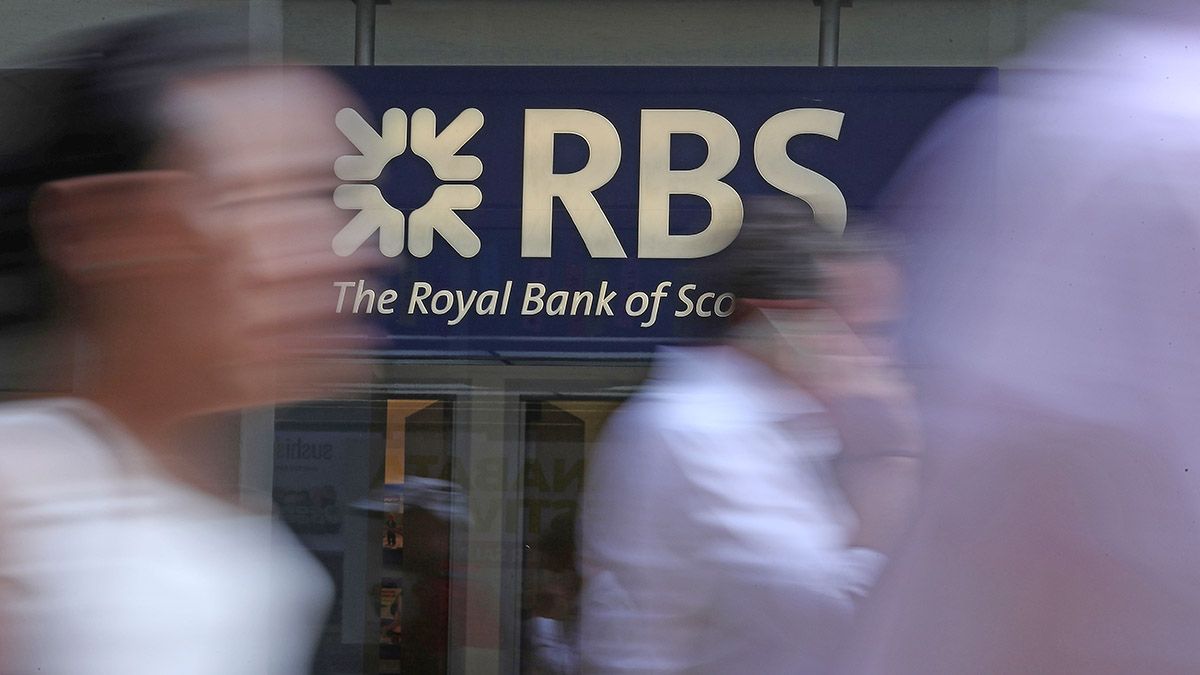When Royal Bank of Scotland [RBS] announced a final dividend of 3.5p and a special dividend of 7.5p per share in its 2018 fourth-quarter results, the message was clear: ten years after being the bailout of what was at the time the biggest bank in the world, its stock is not a losing investment anymore.
Full-year profit beat
The bank posted pre-tax operating profits of £572m for the three months ending 31 December, keeping momentum from the previous quarter, which saw the first dividend payout since 2008. The result was well above a company-provided consensus estimate of £371m. “From a position of capital strength, we will aim to improve returns for you, our shareholders,” CEO Ross McEwan said in the statement accompanying the results.
He and chairman Howard Davies confidently declared the end of the bank’s legacy issues, after 2018 saw the conclusion of the FCA’s probe into the mistreatment of business customers and a settlement with the US over toxic mortgage-backed securities. “Four years ago, I spent the majority of these presentations speaking about our past – all the problems that we faced,” McEwan told analysts. “So, it's great that today with the turnaround complete, we can focus on the future.”
“So, it's great that today with the turnaround complete, we can focus on the future.” - RBS CEO Ross McEwan
Granted, given that RBS’s share price is still a tenth of what it was immediately prior to the bailout, shareholders that had invested prior to the crash aren’t likely to recoup the investment anytime soon. That includes the government, which still holds a 62% stake in the bank and has been making a loss every time it returned shares to private ownership. Still, a revival of RBS’ dividends policy encouraged investors, and the stock – which like most FTSE 100 peers had an awful 2018 – to climb 19% to 258p since the start of the year. Most analysts hold a positive outlook on the stock, with its median share price target sitting at 301p.
| Market cap | £31.34bn |
| PE ratio (TTM) | 19.43 |
| EPS (TTM) | 13.40 |
RBS stock vitals, Yahoo finance, as at 27 February 2019
No-deal Brexit ready
With its investment banking activities – now mostly under the NatWest brand – a shadow of the behemoth they used to be, RBS is very much a real economy-focused lender. That makes it inherently exposed to macroeconomic shocks arising from Brexit, and unlike other banking chief executives – namely, Lloyds’ António Horta Osório – its top ranks have been far from bullish on the country’s and the bank’s fortunes.
“As a predominately UK and Republic of Ireland-focused bank, our performance in lending growth in the future will broadly reflect the development of those economies,” chairman Davies said, adding that the Bank of England’s decision to keep base rates low to counteract a slowdown “would affect the bank's ability to deliver significant income growth”.
So far, the economic slowdown hasn’t materialised on RBS’s books: impairment losses for the fourth quarter were £17m, compared to £234m a year earlier, and the bank hasn’t ramped up the £100m provision it made in October to explicitly cover Brexit-induced impairments.
But McEwan did warn at the time that the bank was tightening underwriting in more exposed sectors, and in the press conference following full-year results, he said that large corporate businesses were already slowing down, as investments get delayed to after Brexit’s contours are defined. That’s forcing the bank to take, as he put it, a “wait and see” approach. “We've put this bank over the last five years I think in a fantastic position for whatever comes good or bad,” he told analysts. “And we're not about to give that away going into probably one of the most uncertain times in four years with Brexit. So, let's see what comes out of that before we start giving the liquidity back."
Continue reading for FREE
- Includes free newsletter updates, unsubscribe anytime. Privacy policy





